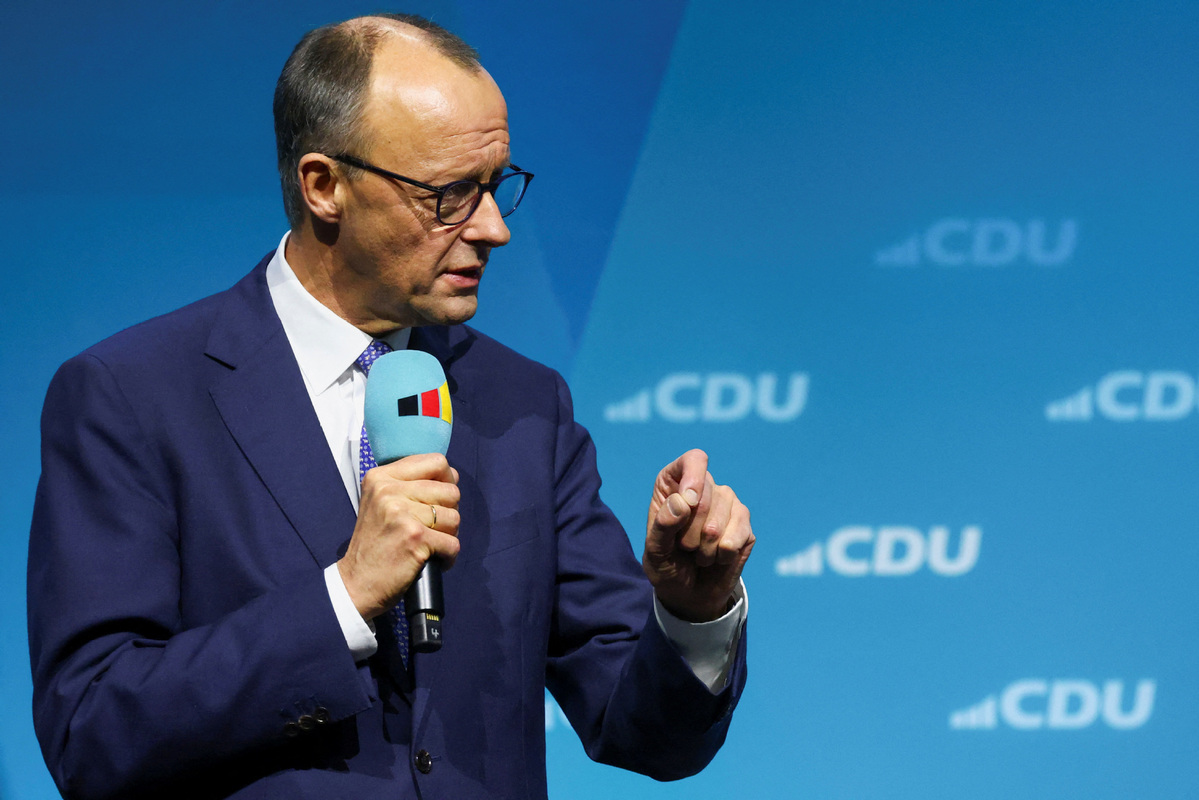
German conservative CDU candidate for chancellor Friedrich Merz campaigns in Berlin, Germany, Feb 20, 2025. [Photo/Agencies]
Germany heads to the polls on Sunday for a high-stakes election that could see the conservative Christian Democratic Union/Christian Social Union alliance return to power under Friedrich Merz, ending Chancellor Olaf Scholz's tenure leading the Social Democratic Party.
The vote comes amid mounting economic challenges and growing support for the far-right Alternative for Germany, or AfD, which polls show could become the country's second-strongest party.
Latest surveys put Merz's conservative bloc at 29 percent, positioning the 69-year-old former investment lawyer to lead Europe's largest economy, while Scholz's center-left SPD trails in third place at 16 percent, behind the AfD's 21 percent, Agence France-Presse reported.
The snap election, triggered by the collapse of Scholz's three-party coalition in November, takes place as Germany battles rising immigration concerns and uncertainty over its role in supporting Ukraine in its conflict with Russia, amid signals of a potential US-Russia settlement that could bypass European allies.
Beyond Merz and Scholz, the contest features two additional major contenders: Vice-Chancellor and Economy Minister Robert Habeck of the Greens and the AfD's Alice Weidel, whose party has sparked controversy for its anti-immigration stance.
Maintaining a 'firewall'
Despite having doubled its support since the 2021 election, the AfD remains politically isolated as a result of Germany's postwar stigma against far-right politics, with all mainstream parties maintaining a "firewall "against cooperation.
The party, under surveillance by domestic intelligence services, has nonetheless gained momentum through controversial endorsements from the allies of United States President Donald Trump.
High-profile backing from figures such as US billionaire Elon Musk, who appeared at the AfD's campaign launch, and US Vice-President JD Vance's suggestive speech at the Munich Security Conference earlier this month, have lent the AfD unprecedented international visibility, the Financial Times commented.
Endre Borbath, a political science professor at Heidelberg University in Germany, warns that recent attempts to breach the "firewall "have contributed to the AfD's "normalization" within German politics.
"I think it might also reflect some kind of deliberate strategy in the sense of testing out the kind of societal climate, testing out the discursive climate, and seeing what would happen, should there be some kind of coordination with the AfD, or should the AfD be taken as a normal political party," he told Al Jazeera.
While Merz said he aims to form a government by mid-April if he wins, Germany's complex coalition-building process could stretch longer as no party is projected to win an absolute majority in the Bundestag, The Associated Press reported.